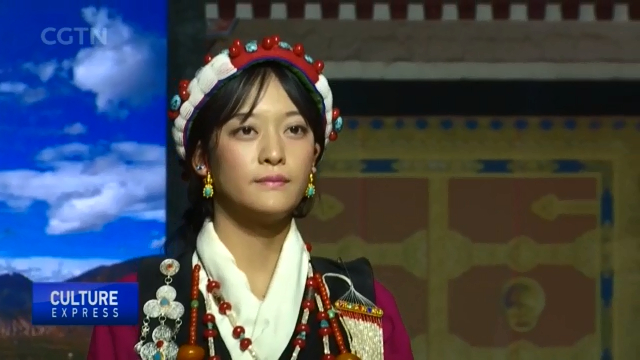
18:42, 13-Aug-2018
Shoton Festival: Tibetan fashion show highlights distinctive culture
Updated
18:28, 16-Aug-2018
02:51

A fashion show featuring Tibetan-style costumes dazzled crowds Sunday in Lhasa, capital of Tibet Autonomous Region. For the first time, the event was a part of the ongoing Shoton Festival, or Yoghurt Festival. The items represent the traditional and modern elements interweaving on the runway. CGTN's Yang Jinghao has more.
A fashion fest of tradition and modernity. Some 100 Tibetan-style costumes caught the eyes of several hundred in Lhasa over the weekend. Local young people livened up traditional dresses, sporting them in their original charm.
TIBETAN STUDENT "I am very happy to participate in such an event. It's a great opportunity to share our traditional culture and showcase myself. It's really great."
Fashion experts from China's top design college, along with some local designers, impressed spectators with their innovative works integrating modern elements. They were presented by professional models.
TASHI YUNGTSO TIBETAN DESIGNER "My design philosophy is that I like to add popular, modern elements to traditional noble class styles. The biggest aspect for my five sets is the bold innovation in color."
This is the first time that a fashion show was included in Tibet's annual Shoton Festival. But as early as 2002, a model contest was held in front of the world-renowned Potala Palace. Director Zhang Jian witnessed both events.
ZHANG JIAN DIRECTOR "Back then, very few people in Tibet paid attention to costume culture. It was like people 'forced' their fashion concepts into the mysterious place. But this time, the designers fully explored valuable elements from Tibetan costumes. It's significant!"
In most ethnic groups today, people only wear their own costumes on important occasions like weddings or festivals. Zhang Jian says it's worth attempting to apply traditional craftsmanship of ethnic costumes, such as embroidery and color matching, into modern designs.
ZHANG JIAN DIRECTOR "We can't just copy what our ancestors left to us. Moreover, we need to innovate and develop them with our wisdom."
Many Tibetans say they believe their time-honored tradition will never disappear. But preserving it calls for greater efforts by more people, especially the younger generation, who they hope can make a habit of wearing their own costumes. YJH, CGTN, Lhasa, Tibet Autonomous Region.

SITEMAP
Copyright © 2018 CGTN. Beijing ICP prepared NO.16065310-3
Copyright © 2018 CGTN. Beijing ICP prepared NO.16065310-3